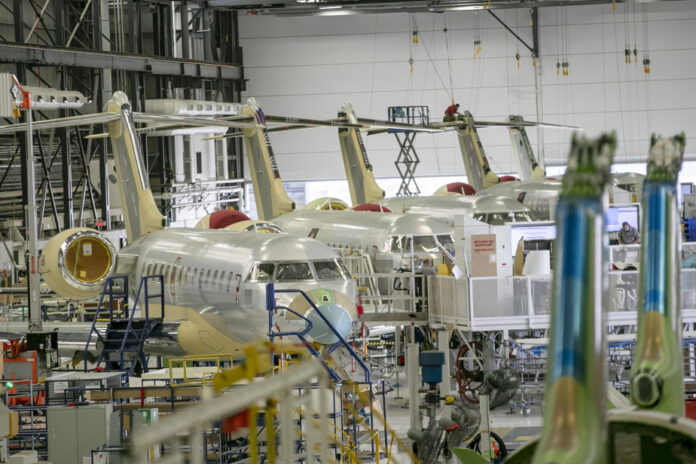One of the main business aviation meetings next month in Las Vegas could have an impact on the order book at Bombardier. A large order is expected during the event, and the Quebec aircraft manufacturer would be among the finalists to obtain it.
This major contract would come from Flexjet, a fleet operator that rents aircraft at hourly rates or offers seats on private jets. Its president, Kenn Ricci, recently told Private Jet Comparisons that “something big” would be announced. The specialized site claims that the Quebec multinational could win the order. The company has not commented on this hypothesis.
It was not possible to have an idea of the number of aircraft that could be purchased by Flexjet – a former division of Bombardier – but Benoit Poirier, of Desjardins Securities, believes that the firm portion of the contract could include at minus 25 units.
“This could be a game changer for Bombardier,” the analyst wrote in a note recently sent to clients.
Orders often come with options that can significantly increase the potential value of a contract. For example, last May, NetJets, another fleet operator, committed to purchasing up to 250 Praetor 500s from Embraer. If all options are exercised, the value would reach US$5 billion.
Mr. Poirier believes that there are a few factors that work in Bombardier’s favor.
On the one hand, its great rival Gulfstream will not be present at the National Business Aviation Association show, Aviationweek recently reported. According to Mr. Poirier, this signals that the American manufacturer has nothing to announce. On the other hand, Embraer’s order book has been full for several years since NetJets’ commitment to it, he adds. The Brazilian company is probably not in the picture, suggests Mr. Poirier.
When Bombardier sold Flexjet to private investors in 2013, the transaction was accompanied by an order worth 5.2 billion for the sale of 245 private jets. Flexjet currently owns 269 Bombardier, Embraer and Gulfstream aircraft.
Flexjet, NetJets and other companies in this niche are increasingly popular with the ultra-rich. In the crosshairs of environmentalists due to greenhouse gas emissions emanating from private jets, the wealthy are turning to fleet operators, in particular to avoid being identified by software that allows aircraft to be tracked.
“This way of doing things allows you to remain anonymous,” explains analyst Brian Foley, of the American firm Brian Foley Associates. We cannot know who is inside the plane. All we know is that it belongs to the operator. In 2022, a third of deliveries in the industry were made to these companies. This is a significant proportion. »
After the records observed at the height of the pandemic, the level of activity is falling again in business aviation. In September, it showed a decline of 5% compared to the same period in 2022, according to the analysis firm WingX. Activity nevertheless remains more vigorous than at the same period before the pandemic.
As of June 30, the value of Bombardier’s order book stood at approximately 15 billion, which represents approximately two full years of deliveries at current rates. During the first six months of the year, the aircraft manufacturer’s ratio of new orders to deliveries stood at 1.1.
This means that the rate at which Bombardier wins new contracts allows its order book to remain stable. A large order would allow it to grow and increase predictability for its assembly plants.
In a context of economic slowdown – which generally has a negative effect on demand in business aviation – Bombardier’s stock fell around 9% on the Toronto Stock Exchange. On Friday, it closed at $47.92.















